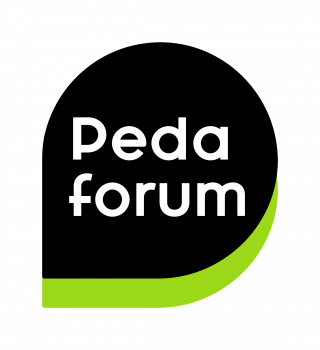The theme of the event is Towards sustainable culture of higher education pedagogy. The theme was selected based on current topics of discussion in the field of higher education pedagogy. The cross-cutting themes are sustainability and internationality; sustainability is also visible throughout the event in various practical choices, and the conference is planned in such a way that it serves the widest possible audience (e.g. some sessions in English and virtually).
Sub-themes are:
1. Participatory and inclusive higher education pedagogy
In this sub-theme, answers to the following questions are sought:
- What should higher education teaching and learning achieve? How is accessible higher education built? How to promote individual study arrangements in higher education?
How to support teachers in the planning and implementation of accessible higher education pedagogy? - How does the higher education take into account the diversity of students and teachers and promote inclusive pedagogical practices? How to develop higher education pedagogy globally, but sustainably? How to promote the decolonization of teaching?
- How does the teacher act in an ethically sustainable way in his course of study? What is an ethical university like? How to build an ethically sustainable digital learning environment?
- How to combine research and teaching in a sustainable way in the work of a researcher-teacher? What kind of competence and knowledge is sustainable? What added value does higher education produce for students’ learning and development? How do you achieve top results in learning?
- How to involve working life in a sustainable way in the development of higher education pedagogy? How to utilize participatory teaching and assessment methods? What kind of learning environment would be inclusive? How can the newest higher education pedagogic research be utilized in the development of learning and teaching in everyday life
2. The well-being of the higher education community
In this sub-theme, answers to the following questions are sought:
- What challenges the well-being of students and staff during these time? How is the well-being and resilience of students and staff supported in everyday life? How can an individual teacher support students’ well-being? What about the entire degree program or higher education institute? How can well-being and sustainability be considered in the internationalization of higher education institutions?
- What kind of management sustainably supports teachers’ well-being? How can shared pedagogical leadership support teachers’ work and well-being? How does team or co-teaching support the well-being of students and colleagues?
- What kind of practices have been developed to support students’ well-being? How can the well-being of students and teachers be taken into account in curriculum work? What kind of learning environment supports the well-being of students and employees?
3. Operational cultures and pedagogical leadership
In this sub-theme, answers to the following questions are sought:
- What challenges a sustainable pedagogical culture? How do you create sustainable pedagogical practices and an open and inclusive learning and working culture?
- What is sustainable, open and inclusive pedagogical management like? How can the pedagogical management of higher education institutions build an operating culture that promotes learning and well-being? What kind of challenges and opportunities do institutional boundary crossings create for the pedagogical culture?
- What kind of challenges and opportunities does the internationalization of the higher education institution offer for the development of the pedagogical culture? What kind of operating culture do different learning environments offer and create for higher education? How to develop the openness of learning and learning materials? What kind of curriculum work is sustainable?
- How are the university’s performance goals and the good quality of teaching reconciled? How do you evaluate the effectiveness of higher education pedagogical development work?
Abstracts has been submitted in relation to the sub-themes mentioned above and in the following formats:
- Presentation: The presentation deals with either implemented development experiments, studies carried out on Pedaforum’s subject area, or “best practices”-style presentations. The presentation is 15 minutes, followed by a 10-minute discussion.
- Workshop: In a workshop, a topic related to the theme of the event will be discussed in a way chosen by the author(s) of the proposal. In the workshop, participants get to actively interact and exchange ideas with other participants. The duration of the workshop is a maximum of 1.25 hours.
- Symposium: Symposia presenting empirical or theoretical research related to higher education pedagogy and good pedagogical practices can also be proposed. The duration of the symposium is 1.25 hours.
- Poster and e-poster: At the event, a poster exhibition will be organized, which participants will have the opportunity to familiarize themselves with. The posters are either scientific or professional. A scientific poster describes research and its results while a professional poster describes development practices. It is also possible to present an e-poster.
This year, in addition to traditional posters, we were accepting e-posters, which are shown on the screen on the spot. There is a limited number of displays. If you submitted an e-poster, we kindly ask you to bring the presentation with your own computer. The format of the e-poster is not limited. However, be aware of the time available if you are showing videos, for example.
Abstracts were accepted until February 14, 2023.

